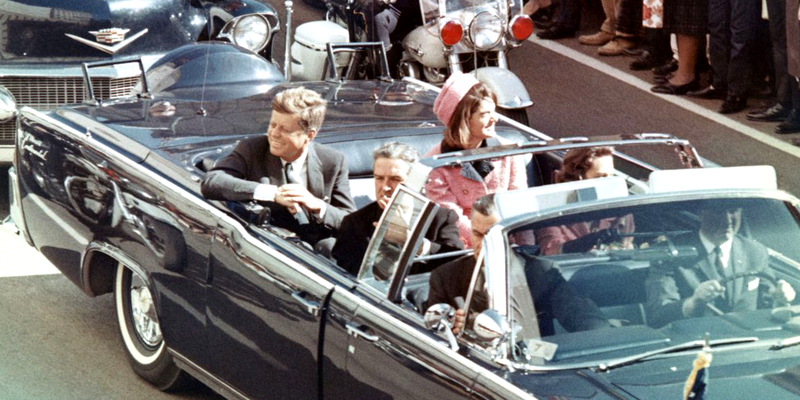Politics
BREAKING: JFK Assassination Doctors Break Silence, Dispute Key Claim

Doctors who tended to President John F. Kennedy on the day of his assassination have come forward challenging a key aspect of the official narrative. The development sheds new light on one of the most scrutinized events in American history.
The new documentary “JFK: What the Doctors Saw,” produced by Jacquelynn Lueth and featured on Paramount+, brings forth the testimonies of several doctors who were present in the emergency room at Parkland Hospital on November 22, 1963.
These medical professionals, with their extensive experience in treating gunshot wounds, now raise serious doubts about the Warren Commission’s conclusion that a single “magic bullet” fired by Lee Harvey Oswald was responsible for Kennedy’s death.
Jacquelynn Lueth, the executive producer behind the documentary, conducted interviews with seven doctors from Parkland for the film. In her recent article for CBS News, she noted that the doctors’ memories were remarkably sharp and vivid, seemingly unaffected by the many years that have passed since the event.
“The doctors at Parkland had extensive experience in treating gunshot wounds and had no agenda other than trying to save the president’s life. Those who saw the wound in the president’s neck believed it was an entrance wound. Several of them saw a gaping hole in the back of JFK’s head,” Lueth said.
The doctors’ accounts, as detailed in the documentary, reveal discrepancies between their observations at Parkland and the autopsy photos taken at Bethesda. They recall a wound in the president’s neck that appeared to be an entrance wound and a gaping hole in the back of JFK’s head, contradicting the official report that Kennedy was shot from behind.
This suggests the possibility of multiple shooters, challenging the long-held belief that Oswald acted alone. Moreover, the documentary includes a clip where Dr. Malcolm Perry, the surgeon who attended to Kennedy, was reportedly warned by an individual believed to be a Secret Service agent to never again claim that the throat wound was an entrance wound.
“When [Dr. Perry] left the room, someone came up to him who Dr. Perry thought maybe was a Secret Service man, and he told Dr. Perry, ‘You must never, ever say that was an entrance wound again if you know what’s good for you.’”
The new insights from individuals involved in the aftermath of the assassination continue to fuel the ongoing debate about what really happened on that fateful day in Dallas. As time has passed on more and more has been revealed.
Earlier this year, former U.S. Secret Service agent Paul Landis, who was near Kennedy during the assassination, also came forward. In an interview with The New York Times, Landis recalled finding a bullet in near-perfect condition in the back seat of Kennedy’s limousine, a discovery that contradicts the “magic bullet” theory.
“There was nobody there to secure the scene, and that was a big, big bother to me,”Landis said. “All the agents that were there were focused on the president.”
“This was all going on so quickly. And I was just afraid that — it [the bullet] was a piece of evidence, that I realized right away. Very important. And I didn’t want it to disappear or get lost.”
The quest for a complete and accurate understanding of JFK’s assassination remains as relevant today as it was nearly 60 years ago.

